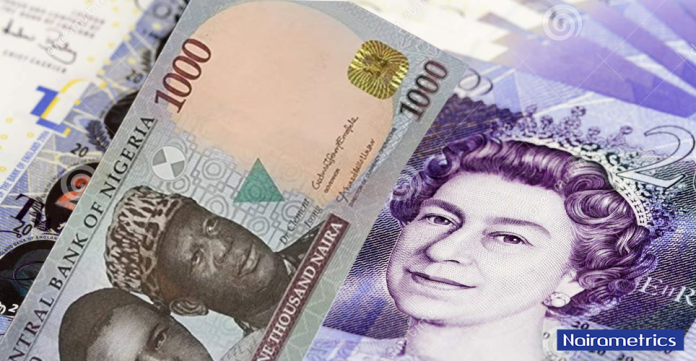The naira breaks the N2,180 barrier and begins Thursday’s session at the lower end of its range against the British pound. On the black market, the pound trades at N2,188/£1 despite improved conditions in Nigeria’s foreign exchange reserves managed by the Central Bank of Nigeria (CBN).
The naira’s rapid depreciation against the British pound in the second half of the year coincides with Nigeria’s reserves reaching $40 billion, marking the highest level under President Tinubu’s administration.
The pressure from the British pound on the naira remains high, even though the number of Nigerian students studying in the UK has significantly decreased due to British policy changes aimed at reducing migration. Data from the UK Home Office shows that Nigerian student visas issued in the first half of 2024 total 4,669, a 68% drop from 14,772 in the same period of 2023. This reduction has led to 10,103 fewer Nigerian student visas, accounting for 43% of the total decrease in foreign student visas.
Historically, the UK has been a preferred destination for many Nigerians, due to strong cultural ties, similar time zones, shorter travel distances compared to the US and Canada, and the absence of a language barrier. Last year, Nigeria’s trade with the UK amounted to about €35 billion, or roughly one-third of its total foreign trade, with a trade surplus of over €10 billion.
However, weak oil production, fiscal challenges, low export capacity, increased foreign exchange hoarding, and speculative activities continue to strain Nigeria’s foreign exchange market.
UK inflation data from the Office for National Statistics (ONS) shows that inflation in October accelerated to 2.3%, exceeding the expected 2.2%, which contributed to a sharp rise in the pound against major currencies, including the naira. Core inflation also increased, highlighting persistent inflationary pressures.
Outlook for the British Pound
The fundamentals for the British pound remain mixed and tilt toward a bearish outlook, offering the naira some breathing room at the N2,500/£1 resistance level. A 0.1% contraction in the UK’s GDP in October and weaker-than-expected third-quarter growth have contributed to the pound’s decline.
The US dollar has strengthened, particularly following the political developments surrounding Trump’s victory, and growing uncertainty regarding the Federal Reserve’s future interest rate cuts. Furthermore, geopolitical tensions, especially the escalation between Russia and Ukraine, have impacted the British pound, with the currency remaining under pressure from the stronger US dollar.













